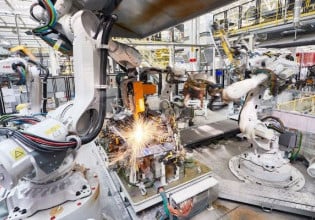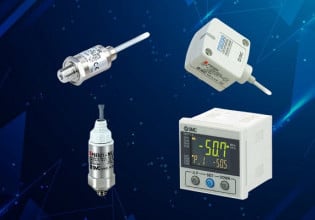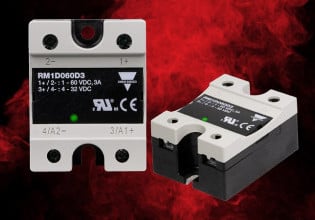Duties of Power Plant Operators, The Journey From Entry to Senior Operator
When beginning a new career, an obvious question is how to take positive steps, from your first day inside the plant all the way to becoming an experienced senior operator.
The advancement of a power plant operator is primarily dependent upon an individual’s attitude in improving performance technique and on a demonstrated ability to handle operating problems as they arise. A supervisor generally assigns added responsibilities to those who have demonstrated that they can handle these added responsibilities. It is apparent that the individual who proves themself capable and who demonstrates the ability to handle problems as they arise, in time, be given an opportunity to assume added responsibility.
What Does a Power Plant Operator Actually Do?
We are so used to a reliable and uninterrupted supply of electricity for our everyday needs that it comes as a surprise when it is suddenly not there. The power plant operators control the power plant machinery that generates the electricity and monitor the functions of vital power plant equipment such as generators, transformers, governors, boilers, turbines, exciters, etc. They direct the system's output to meet constantly changing demands for power and concurrently monitor the instruments to ensure that electricity is flowing from the plant to the consumer end safely.
Nowadays, this is done increasingly with an industrial control system (ICS) like SCADA/DCS. Plant operators spend most of their time in a control room, while auxiliary equipment operators move around the plant to check valves, switches, pumps, pressure, temperature, and level gauges, and spotting abnormal sounds, ensuring that all equipment is operating efficiently and properly.

Figure 1. Plant operators spend a large amount of time in modern plants simply monitoring the data from a SCADA network. Image used courtesy of Adobe Stock
The most desirable individuals from whom to select operators are those who have shown their desire to advance through the study of operator lessons and other available literature, training, and continuous service.
This article will outline the procedure to enable a junior plant operator to become acquainted with the job and the equipment they will be required to handle and explain the steps that will advance a professional throughout a career.
The New (Entry-Level) Operator
The entry-level job requirements may vary from a high school diploma to a bachelor’s degree, but these jobs all require extensive on-the-job technical training. An understanding of mechanical and electrical concepts and mathematical ability are necessary. The potential candidates must pass background checks as well as drug and alcohol screenings.
The first work of the new operator will be to act as a student under a veteran junior or more senior operator. The experienced operator will first orient the new user to the plant, explaining each piece of equipment, its purpose, when used, why used, and give specific operating directions. The operator should take notes on operation and maintenance particulars that are within the operator's jurisdiction, and will usually be provided with a book of rules, or a standard operating procedure (SOP) for proper operation and maintenance of the plant.

Figure 2. Entry-level and junior operators may spend plenty of time working with a more experienced operator. Image used courtesy of Adobe Stock
The new operator should learn, as soon as possible, how to perform these duties and why they should be done in a certain way. A moderate understanding is necessary for all equipment, its purpose, its shortcomings, and how to prevent faulty operation. In simple words, they should know what to do in case of failure of any piece of equipment, visualize any damage that might occur, and know how to repair, replace, or omit damaged equipment in an emergency.
The Junior Operator
When the junior operator is granted a first promotion, work will be fairly similar but responsibilities will be increased. Junior operator duties will include responsibility under the operator for certain prescribed sections of the power plant. The extent of the maintenance expected in this position will vary in different-sized plants.
The junior operator should first learn the range limits of temperature, pressures, and loading characteristics and become familiar with the instructions contained in manuals and plant instruction books. The information contained in all these books should be understood and the pertinent and relevant points memorized. This point is essential because when the information is required, it often is needed for immediate use, allowing very little time, if any, to study up on the point and make a decision.
After several cases of solving issues in which a junior participates, they will become operating conscious, that is, beginning to seek answers as to why to do or not do certain things.

Figure 3. More experienced operators will understand the implications of various sensor measurements and be able to participate in troubleshooting. Image used courtesy of Adobe Stock
The Power Plant Operator
When the junior operator receives a promotion to plant operator, they will be expected to handle all the cases of trouble and adopt a system of anticipation of the individual. A good operator will attempt to anticipate the results of every action, which requires extensive background knowledge which usually comes from experience.
The efficient operator will make corrections in load changes, voltage changes, temperature adjustments, and other routine operating procedures to a predetermined level based on previous experience and requirements. In cases where an unusual or abrupt change is expected, they should foresee the result in order to adjust the machine or system in a reverse direction to minimize the undesirable effects in time and magnitude. The supervisor depends on the operator to handle the plant and system to build up the name and efficiency of the organization.
The plant operator can act as an information officer because of the historical knowledge of the system and plant operations that can be disseminated to anybody seeking information. A synopsis of the major happenings, if any, which would benefit the succeeding operator should be transmitted at the time of shift change, as this will prevent breaking the chain of information.

Figure 4. Many sensitive adjustments and tuning processes are reserved for senior operators with more experience. Image used courtesy of Adobe Stock
The Senior Operator
After an operator has demonstrated his ability to satisfactorily perform the above duties, they will finally become eligible to become a senior operator. On accepting the position of senior operator, further responsibilities are added, such as checking operating records and plant maintenance. They must still perform the duties of any operator and give assistance when required and should be familiar with plant and system drawings, be able to locate trouble from drawings, and take initiative in all plant regulation, operation, and maintenance procedures.
Almost all power plant installations require at least one supervisor with experience similar to that of a power plant senior operator. In general, there are two paths for senior operators to proceed upon: either to continue in the generation department or adjust to an operating and dispatching channel.
Fulfilling the duties of a powerhouse foreman includes developing the ability to direct operators and maintenance crews in plant operation and maintenance and in repair and adjustment of all equipment and taking full responsibility for the plant and decisions.
Summary
Each plant and facility is different and will have varying rules for promotions, responsibilities, and advancement, but these general principles will help someone understand how to become the more successful applicant for such elevated responsibilities.
When someone has sufficient experience in an electrical, mechanical, or maintenance field, or in some related field, they will be better able to demonstrate quality and can apply much of this experience to power plant operation by sincere application and effort.
However, for someone who has worked only in some unrelated field, there will likely be a steep learning curve to develop an aptitude for operating, but if successful in the initial entry stage, hard work in both effort and study can still lead to a path of success in becoming a good operator.






